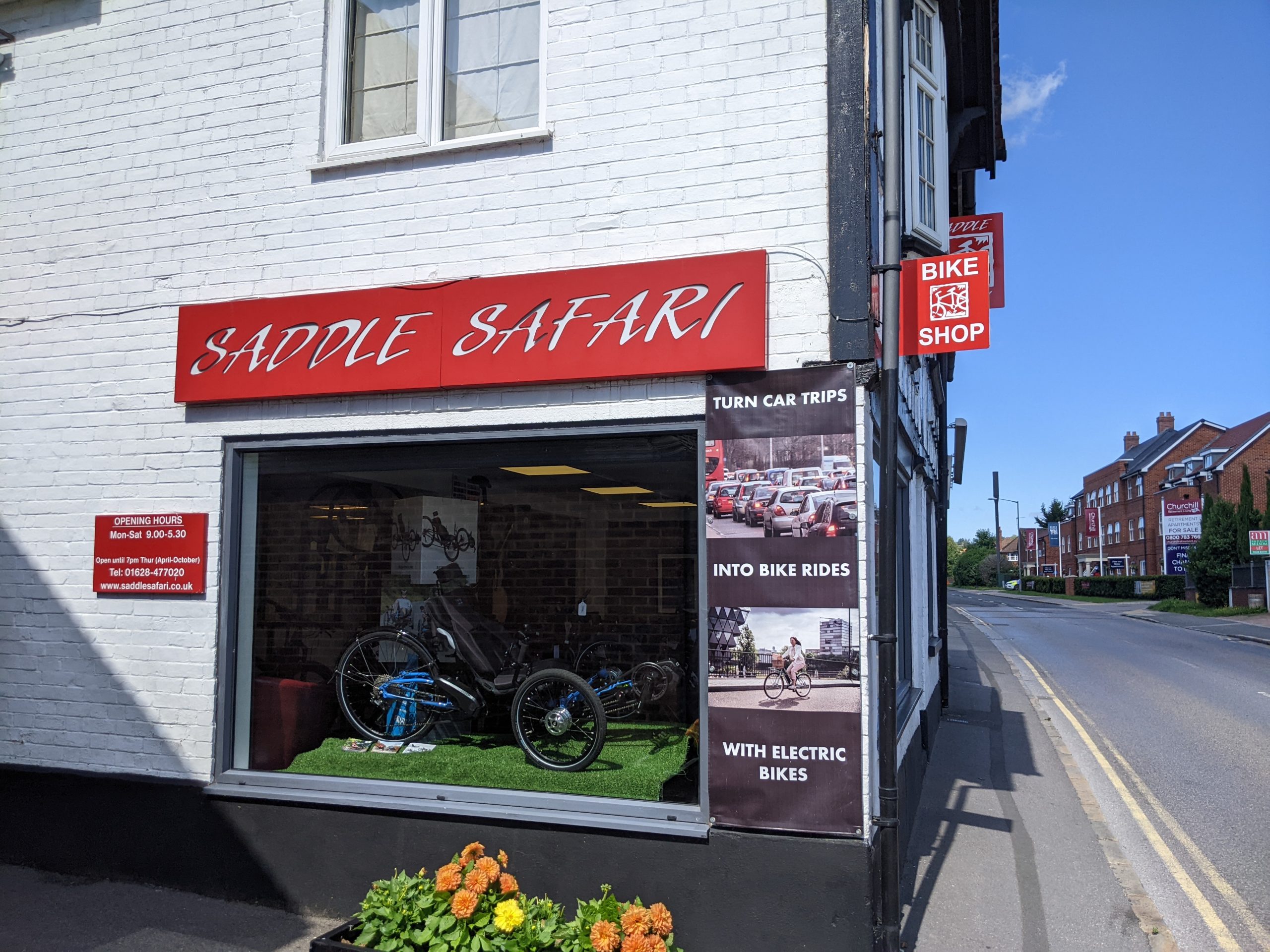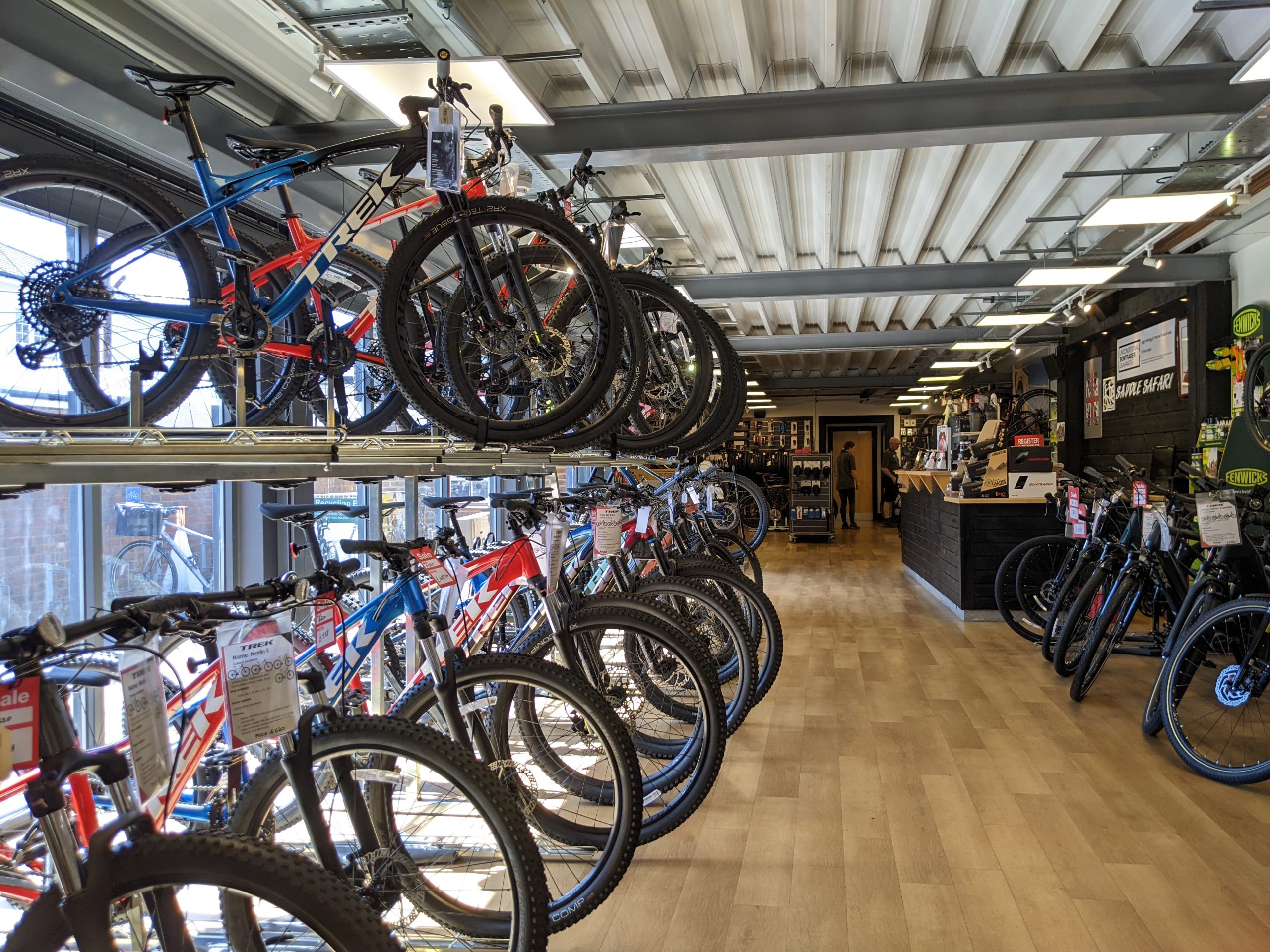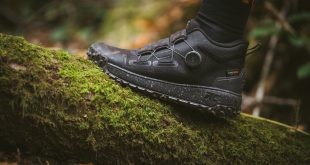After three decades in business, Andy Rackstraw has seen the changing face of the bike industry. Alex Ballinger travelled to visit his store, Saddle Safari, in Buckinghamshire.
This piece first appeared in the September edition of BikeBiz magazine – get your free subscription here
Nestled in the affluent and picturesque Buckinghamshire town of Marlow, on the doorstep of the Chiltern Hills, Saddle Safari is a bike shop that has seen change.
Opened in 1993 by Andy Rackstraw, Saddle Safari was initially a bike rental business based in an old slaughterhouse.

But fast forward 30 years and cyclists will now find an independent bike dealer with a huge amount to offer – from bike fitting, to high-end bikes, and even e-trikes suited to disabled cyclists.
I visited Rackstraw and Saddle Safari, to hear more about the history of the business, how the industry has changed, and how the shop is serving as a vehicle for change in the local area.
“Marlow is a nice and affluent town,” said Rackstraw.
“Very good for cycling, beautiful countryside around the Chiltern Hills, so we have a lot of road cyclists and mountain bikers as well.
“It’s a very pretty town, but it hasn’t really embraced active travel so much, so it does have lots of traffic.”

Local links
Rackstraw’s thoughts on active travel have been one of the inspiration behind Saddle Safari’s evolving business, as Rackstraw aims to use the store as a catalyst for change.
It was this philosophy that led to Saddle Safari launching its own e-cargo bike demo programme.
“We’re just trying to get more cargo bikes out and visible within the town. If more people see them, or their feeling that ‘this isn’t for me’ will change.
“People don’t consider them an option, but if they see them out there they may think ‘maybe we could put the car away and use it for the weekly shop, or take the kids to school.
“But it’s never going to change overnight.”
Saddle Safari’s e-cargo campaign, which was set up to encourage more people use bikes for transport instead of just sport and leisure.
Rackstraw and the team also want to promote the free loans of their Trek Fetch+2 e-cargo machine, so routinely promote the initiative on social media, and have even pulled together a ‘day in the life of an e-cargo bike’
YouTube video to help encourage more people to try it.
Alongside the e-cargo bike loan, Saddle Safari is part of the local community in other ways – from producing its own local route guides, to involvement in a local campaign opposing the building of a new film studio on belt land near Marlow.

An unexpected niche
Saddle Safari caters to just about every type of cyclist, from high-end roadies to kids’ bikes. The store also offers something slightly different to most bike shops, in the shape of specialist trikes for disabled people who may not be able to ride a conventional bike.
“We never considered selling trikes, like most shops, because it’s too out there, too quirky,” said Rackstraw.
“But 11 years ago, I was disabled by a neurological disease that I was diagnosed with.
“It meant I couldn’t ride a conventional bike, so obviously that was a big loss to me. So I looked around and I thought, what could I potentially do? What could I try?”
Rackstraw discovered Inspired Cycle Engineering (ICE), a Cornwall-based specialist in recumbent trikes, e-bikes and folding three-wheelers.
After contacting ICE about buying his own trike, Rackstraw discovered that ICE was also looking for dealers, so he took on a demo bike from the brand.
“Over the years it’s become a really integral and nourishing part of the business – we sell £150,000 worth of trikes a year, which is really positive, but we also meet a completely different sort of clientele, and it’s a really enjoyable aspect of the business.”
This niche of the business both attracts customers from far and wide, making Saddle Safari a destination store, but also helps Rackstraw support people who may not otherwise be able to enjoy riding a bike.
So how can other cycle retailers emulate some of the stand-out work Saddle Safari is doing?
“I think you just have to step away from the business sometimes to be able to look in,” said Rackstraw.
“It’s difficult when you’re busy and understaffed, they’re just getting the work done, but you do need sometimes to step away, look in, and see what changes can be made.
“How can you stimulate a conversation with the customers, rather than it just being about the sale?
“It’s very difficult because you do have to find the time and the resources to do it – but it doesn’t have to cost a lot of money, you just need to be open to ideas.”

Cycling to work?
When it comes to encouraging new cyclists to take up two wheels, Rackstraw also raised concerns about Cycle to Work benefits.
From his experience, Rackstraw found that many users of these benefits are using it as a tax benefit to buy a bike more cheaply, rather than to buy a bike for cycling to work.
Rackstraw said it’s rare that these schemes are used to buy high-end road bikes or mountain bikes, rather than as an encouragement to ditch the car and cycle to work.
Instead he suggested reforming the scheme so it rewards people for cycling to work, in the form of credit for miles cycled.
“This would have a real effect in encouraging more active travel , along with of course the holy grail of safe routes and infrastructure,” he said.

The world needs bikes
But Saddle Safari has still found business challenging over the past few months, suffering through the same overstocking and declining demand that almost every other cycling business has been through.
“I’d say from the beginning of the year we have noticed just a drop off in footfall, and a drop off in demand,” said Rackstraw.
“Unfortunately all those customers that we created in Covid, those bikes have been returned to the sheds and are remaining there.
“They don’t need to buy new bike, so we need to expand the customer base, and the way that we expand the customer base is we create new cyclists. And those new cyclists need to be using their bikes for practical usage – travel to and from work, travel to the shops – that’s where the growth is and where the market is, otherwise we’re all just chasing the same amount of customers.”
Rackstraw foresees this challenging period for the bike trade continuing for the next 12 months, as bike businesses continue trying to shift the current stock, with that stock also being devalued due to extensive discounting.
“But unquestionably the bike trade will bounce back,” Rackstraw added, “Because it always does.
“The world needs bikes, and it will always need bikes.”
 BikeBiz Bicycle and cycling retail news
BikeBiz Bicycle and cycling retail news



